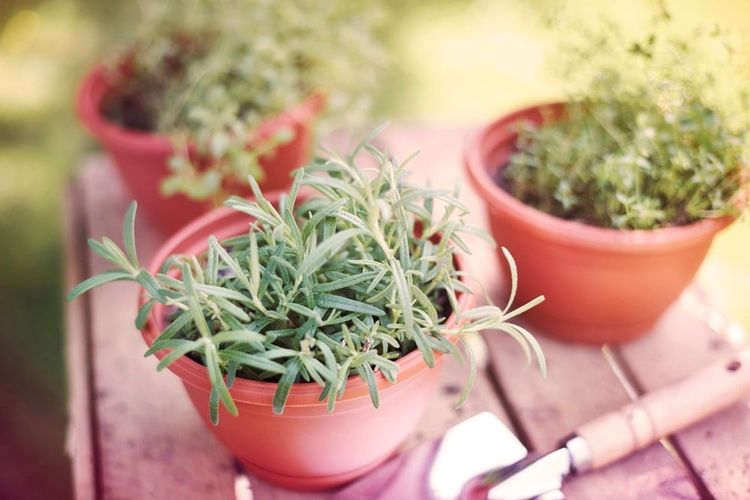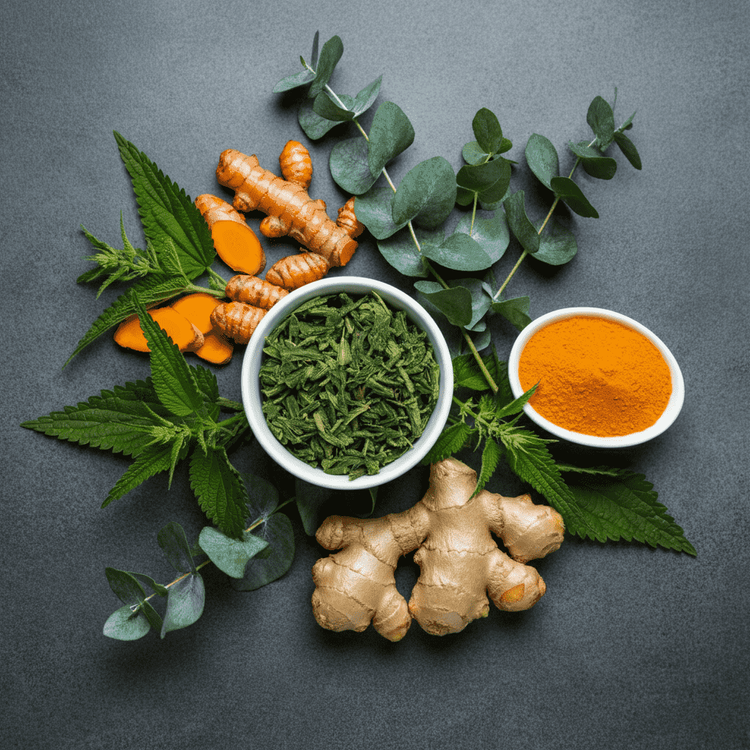Are you tired of constantly buying expensive herbs and supplements for your health? Why not try growing medicinal herbs at home? But not only is it cost-effective, but you also have the satisfaction of knowing exactly where your herbs are coming from and how they were grown.
Growing medicinal herbs at home can be a fun and rewarding hobby. You don't need a large garden or any previous gardening experience to get started. Many medicinal herbs can be grown indoors or in small outdoor spaces such as a balcony or windowsill.
As a herbalist, I'll share my top tips for growing medicinal herbs at home. All these herbs can be grown easily and are great for beginners. But first, let's see why growing medicinal herbs at home is beneficial compared to buying them from the store.
Why Grow Medicinal Herbs at Home?
When it comes to medicinal herbs, freshness and quality are key. Growing your own herbs guarantees that you have access to the freshest and most potent herbs possible. Here are some other reasons why growing medicinal herbs at home is beneficial:
- Cost-effective: Buying fresh herbs from the store can be expensive, especially if you frequently use them. Growing your own herbs is a great way to save money over time.
- Convenience: Having a small herb garden at home provides easy access to fresh herbs whenever you need them.
- Control over quality: Yes, store-bought herbs are convenient, but you have no control over their origin or how they were grown. By growing your own herbs, you know exactly what goes into them and can ensure they are free of harmful chemicals and pesticides.
- Fun and rewarding: Growing herbs can be a fun and satisfying experience. It gives you the opportunity to connect with nature, get your hands dirty, and watch your plants grow.
- Suited for small spaces: Even if you live in a small apartment or have limited outdoor space, you can still grow your own herbs. Many herbs do well in containers and can thrive on a sunny windowsill or balcony.
- Eco-friendly: You can reduce your carbon footprint by growing your own herbs at home. This eliminates the need for transportation and packaging that comes with store-bought herbs.
- Health benefits: Herbs not only enhance the flavor of your dishes but also offer a variety of health benefits.
As you can see, growing your herbs has many advantages. Let's take a look at some popular tools and techniques for successful herb gardening.
Techniques for Medicinal Herb Gardening
There are a few important techniques that can help you successfully grow herbs at home. These include:
- Choosing the right location: Most herbs require plenty of sunlight, so it's important to choose a sunny spot for your herb garden. However, some herbs, such as mint and parsley, can thrive in partial shade.
- Preparing the soil: Healthy soil is essential for growing healthy herbs. Make sure to till or loosen the soil and add compost or organic matter before planting.
- Choosing the right herbs: Consider what you will use your herbs for and choose accordingly. For example, if you want to make herbal teas, try growing chamomile, mint, or lemon balm. If you are a fan of Italian cuisine, basil, oregano, and thyme would be great choices.
- Planting the herbs: Most herbs can be planted from seeds or seedlings, depending on your preference. Be sure to follow the instructions on the packet or container for proper spacing and depth.
- Water and sunlight requirements: Herbs generally thrive in well-draining soil and require consistent watering. Herbs thrive with a minimum of six hours of sunlight daily, so be sure to select a bright, sunny location for your garden.
- Harvesting your herbs: Once your herbs have reached their full size, you can harvest them as needed.
Tools Required:
To successfully start and maintain an herb garden, you will need the following tools:
- Gardening gloves
- Handheld trowel
- Pruning shears
- Watering can or hose
- Pots/containers
- Fertilizer (optional)
- Mulch (optional)
Top Herbs to Grow at Home
Mint
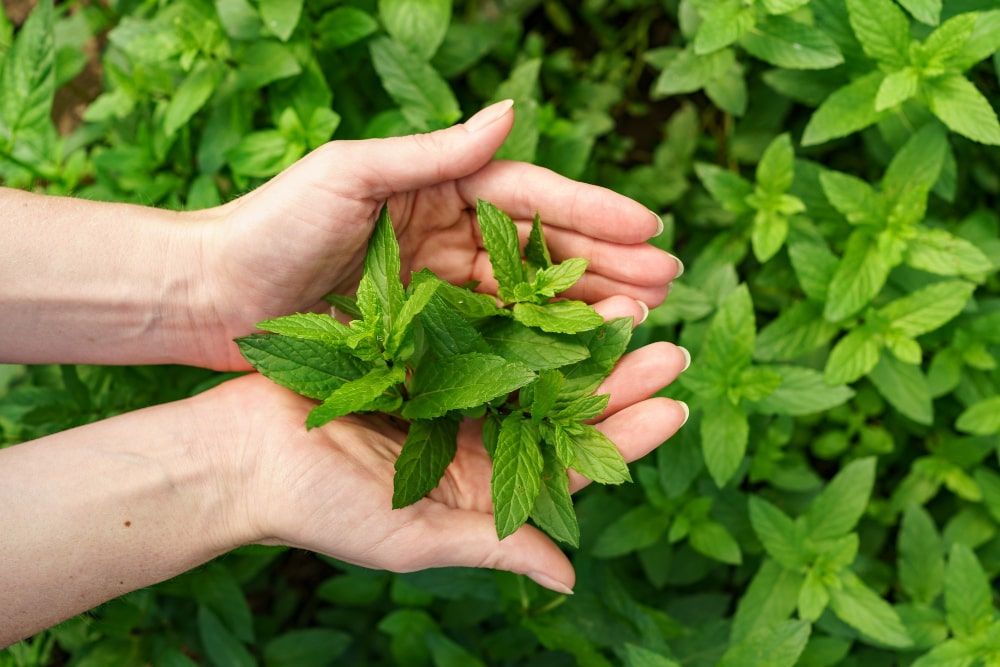
First on my list is mint, a refreshing and versatile herb. Mint is easy to grow and can thrive in both sun and partial shade. It's an excellent addition to savory dishes, such as salads or roasted vegetables. Mint is also known for its medicinal properties and can be used to relieve headaches, aid digestion, and freshen breath.
You can grow mint in containers or directly in the ground, as it can spread quickly. Mint loves moist soil, so make sure to keep it watered regularly. I always keep a small pot of mint on my kitchen windowsill, so I can easily add it to dishes while cooking.
Basil
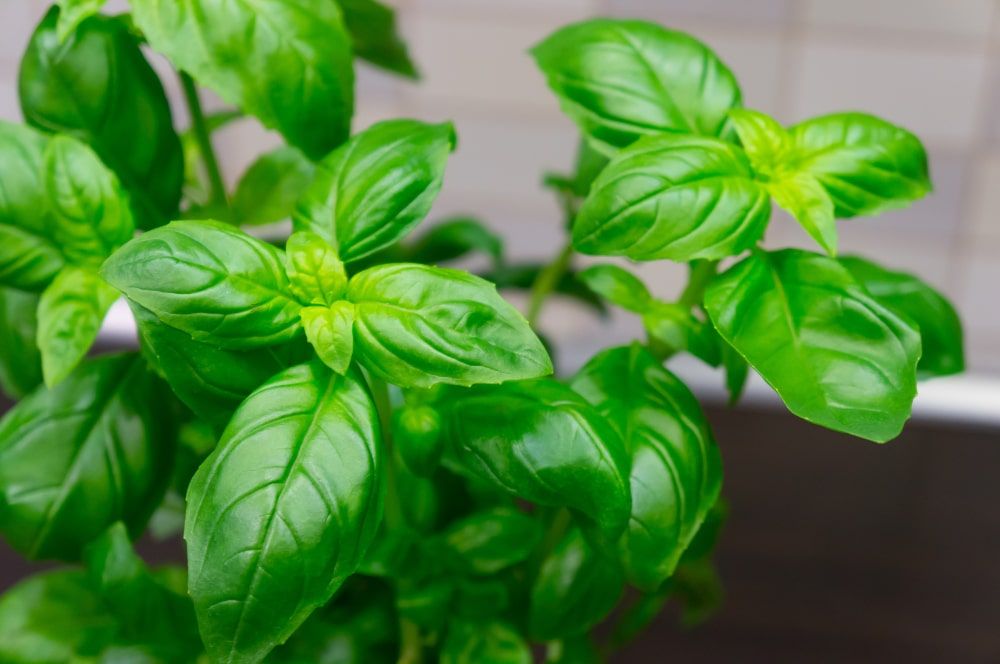
Basil is another popular culinary herb that is commonly used in Italian cuisine. It has a sweet and slightly spicy flavor and is often used in pesto, pasta sauces, and salads.
But besides its delicious taste, basil also has numerous medicinal properties. It contains high levels of antioxidants and essential oils that have anti-inflammatory and antibacterial effects. Basil can also help improve digestion and relieve stress.
To grow basil, you can start with seeds or purchase established plants from a local nursery. Basil prefers warm weather and plenty of sunlight, so make sure to plant it in a spot where it can receive at least six hours of sun daily. It also requires well-draining soil, so consider adding organic matter or sand to improve drainage if needed. Once your basil plant is established, it will benefit from regular watering and occasional fertilization.
Parsley
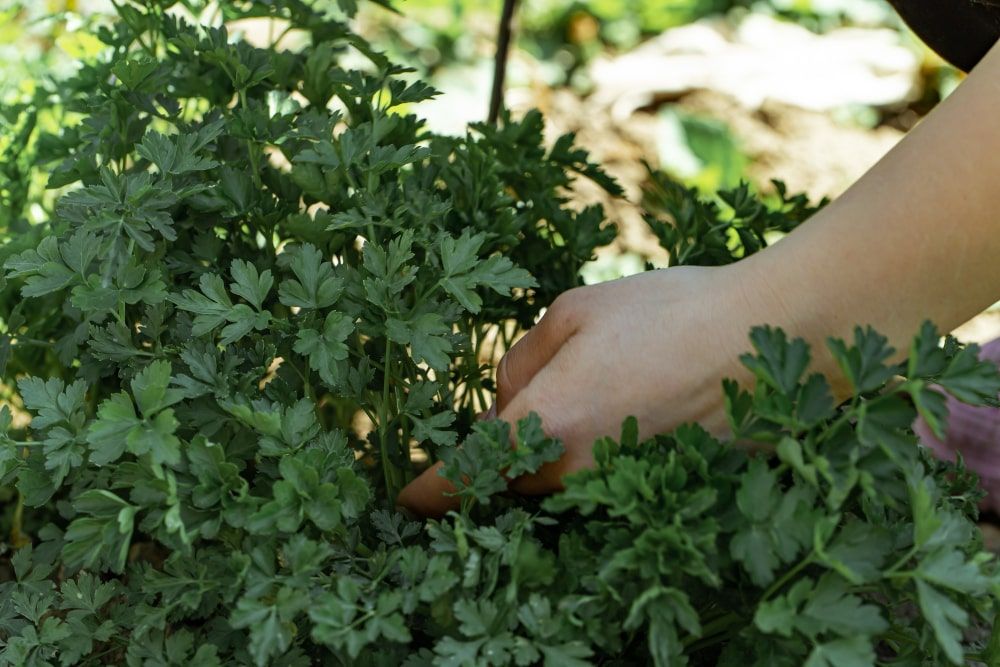
One of my favorite herbs to grow at home is parsley. Not only does it have a delicious flavor that can enhance many recipes, but it also has numerous medicinal properties.
Parsley is known for its high levels of vitamins A and C, as well as minerals like calcium and iron. These nutrients make it a powerful antioxidant and anti-inflammatory herb. It's been used for centuries in traditional medicine to help with all kinds of conditions, including:
- Respiratory issues such as coughs and asthma
- Digestive issues like bloating and flatulence
- Urinary tract infections
- High blood pressure
- Skin conditions like acne and eczema
To grow your parsley at home, you can start from seeds or purchase seedlings from a garden center. It is a hardy plant that grows well in both sunny and partially shaded areas. It does not require a lot of maintenance and can even be grown in pots or containers. In cooking, parsley is used in a variety of dishes such as salsas, curries, and soups.
Rosemary
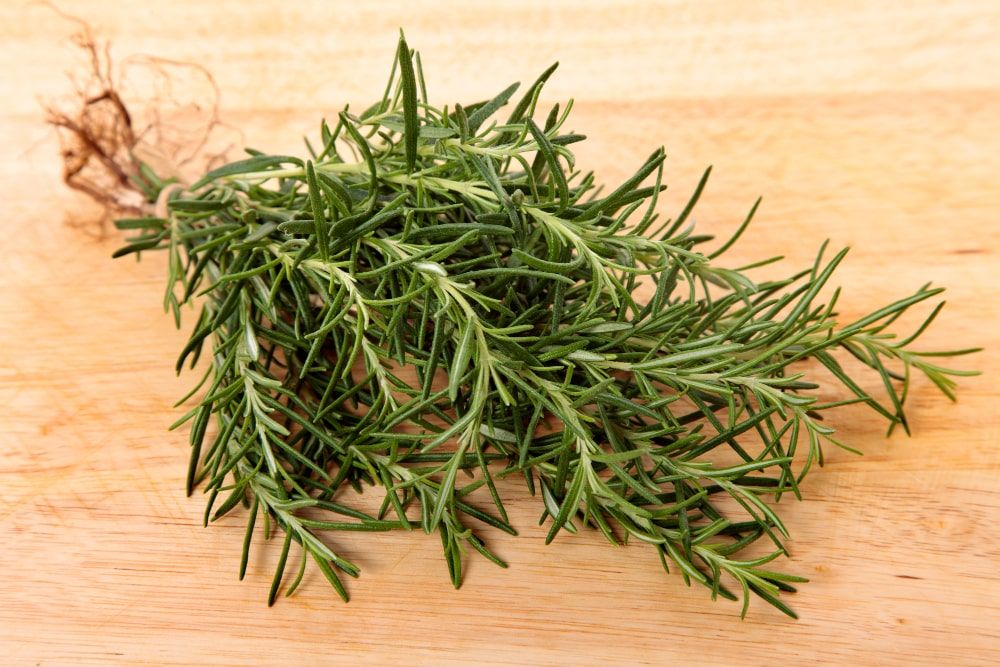
Rosemary is another popular herb that has been used for its medicinal properties since ancient times. It is a woody, evergreen shrub with needle-like leaves and small blue flowers. Rosemary is native to the Mediterranean region, but it is now grown and used all over the world.
Rosemary has a long history of medicinal use, dating back to ancient Greece and Rome. Here are some of the health benefits associated with this versatile herb:
- Improves memory and cognitive function
- Relieves stress and anxiety
- Eases muscle pain and inflammation
- Boosts the immune system
- Helps with hair and scalp health
You can grow your rosemary plant in your garden or a pot indoors. It is a hardy and drought-resistant plant, making it easy to care for. Simply water it once or twice a week and make sure it gets plenty of sunlight.
In addition to its medicinal properties, rosemary is also commonly used in cooking. Its distinct aroma and flavor make it a popular choice for seasoning meats, vegetables, and even breads. It can also be infused in oils and vinegars for added flavor.
Rosemary is a versatile herb that has been used for centuries for its many benefits. Whether you are using it to improve your health or enhance your dishes, it is a valuable addition to any garden or kitchen.
Conclusion
Growing medicinal herbs at home can provide a variety of benefits. Not only do you have a readily available supply of natural remedies, but you also have the opportunity to connect with nature and take control of your own health. Following the steps outlined in this guide, you can successfully grow your own medicinal herbs and incorporate them into your daily routine.
In addition to the physical benefits, growing medicinal herbs at home can also have a positive impact on mental health. Spending time tending to plants and being surrounded by greenery has been shown to reduce stress, anxiety, and depression. It can also promote mindfulness and improve overall mood.
Frequently Asked Questions
How much sunlight do medicinal herbs need?
Most medicinal herbs need 4-6 hours of direct sunlight daily. However, some herbs like mint and parsley can grow well in partial shade.
How do I harvest medicinal herbs properly?
Use clean scissors to snip leaves or stems, focusing on parts that are fully grown. Avoid pulling up the entire plant as it may damage the roots and prevent future growth.
What tools do I need to start growing medicinal herbs?
Basic tools such as pots or containers, quality soil, a watering can, and gardening shears are sufficient to start growing medicinal herbs. But certain herbs may require specific tools and methods for optimal growth.
How do I care for my medicinal herb garden?
Caring for a medicinal herb garden includes providing the right amount of water, sunlight, and nutrients. Regularly checking for pests and diseases is also important to maintain a healthy garden. Pruning and trimming herbs as needed can promote growth and prevent overcrowding.
Are there any common mistakes to avoid when growing medicinal herbs?
Many people make the mistake when growing medicinal herbs at home.
- Overwatering
- Underwatering
- Using poor-quality soil
- Not providing enough space for herbs to grow
- Ignoring pest and disease control
It is crucial to avoid these mistakes as they can greatly affect the health and growth of your medicinal herbs.
Read More: Morning Routine to Boost Metabolism: Start Your Day Off Right
